


| On the Japanese side,
there was no official narrative, nor were there any official artists.
What we have instead is an engaging variety of artwork by artists whose names remain, for the most part, unknown. The Japanese visualization of these events presents a lively contrast to the restrained American illustrations. |
| One of the most spectacular Japanese depictions of the
Perry mission is a large folding screen on which scenes from the encounter
have been pasted. These paintings were done after Perry’s departure, based largely on sketches from the time. |
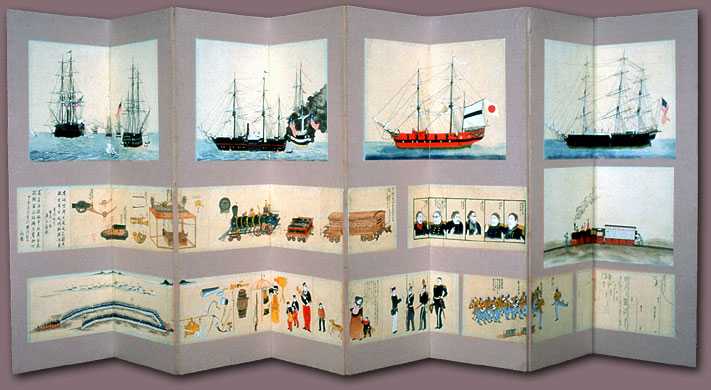


| The graphics that follow are close-up details from this wonderful collage. |
| Screen details, top row |

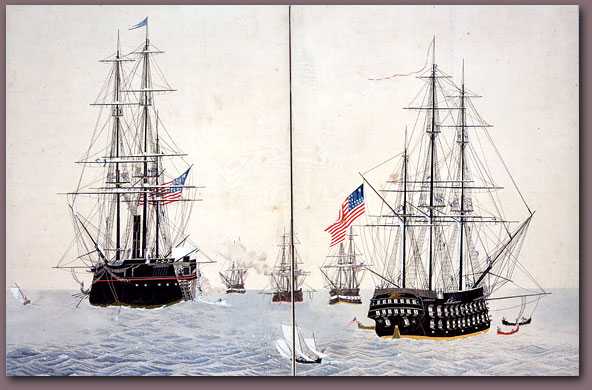
| Perry’s squadron; the “black ships”
give a ceremonial salute. Perry’s flagship, the steamer Powhatan, is in the foreground (right image) |
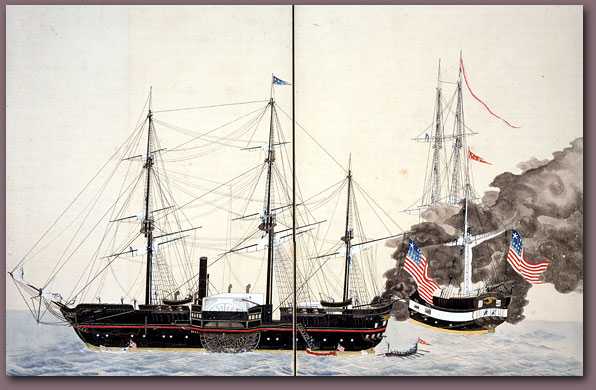
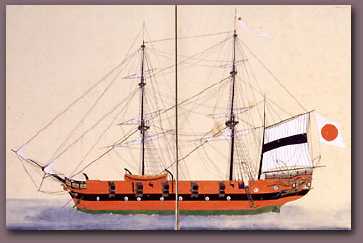
| Japan’s feudal leaders built one European-style sloop, the Phoenix, which is depicted on the screen although it played no role during the Perry visits. |
| The Japanese were fascinated by American weapons,
musical instruments, and the recently invented telegraph. |


| Screen details, middle row |

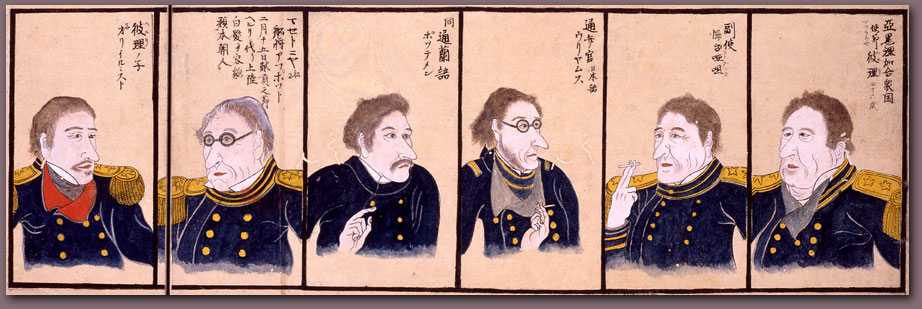
| Perry’s son, Oliver | Captain Joel Abbot | Translator Anton Portman |
Translator S. Wells Williams |
Second-in-Command Henry A. Adams |
Commodore Matthew Perry |
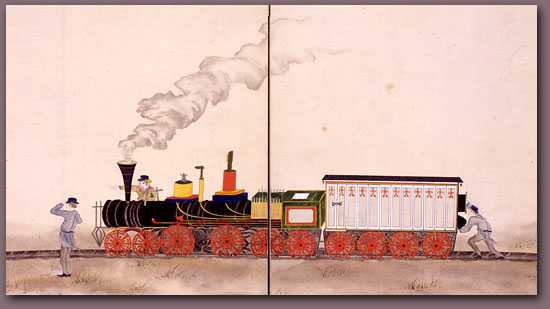
| The middle row of the screen concludes with the miniature locomotive in action. |

| Screen details, bottom row |
| The screen includes a
colorful sequence of portraits: |

| Perry’s troops in formation at Yokohama. |
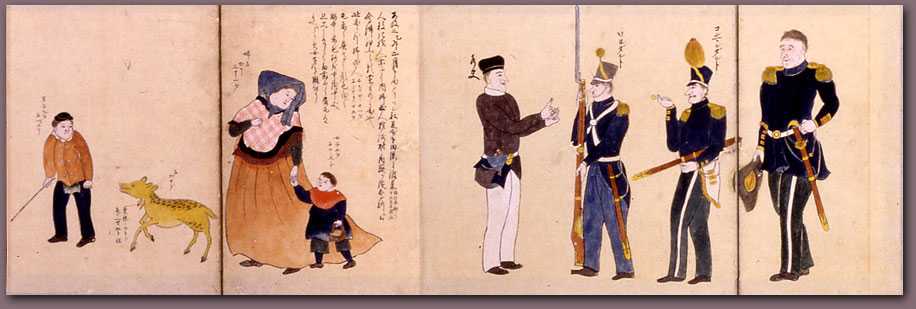
| The first American women arrived in Japan in 1855, one year after Perry’s departure. |

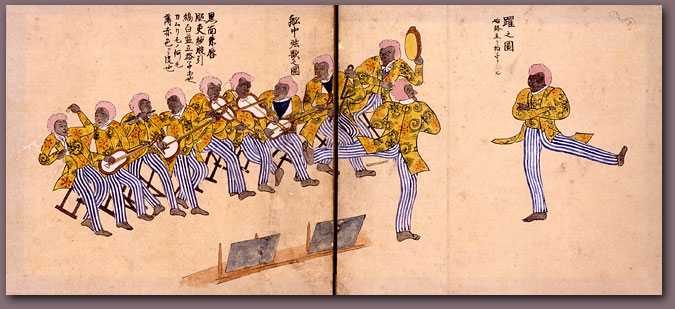
| Shipboard entertainment for the Japanese featured a minstrel show with crewmen in blackface. |
|
“Assembled Pictures of Commodore Perry’s Visit,” artist
and date unknown © Tokyo University Historiographical Institute. On viewing images from the historical record: click here. Black Ships & Samurai © 2008 Massachusetts Institute of Technology A project of professors John W. Dower & Shigeru Miyagawa Design and production by Ellen Sebring, Scott Shunk, and Andrew Burstein |